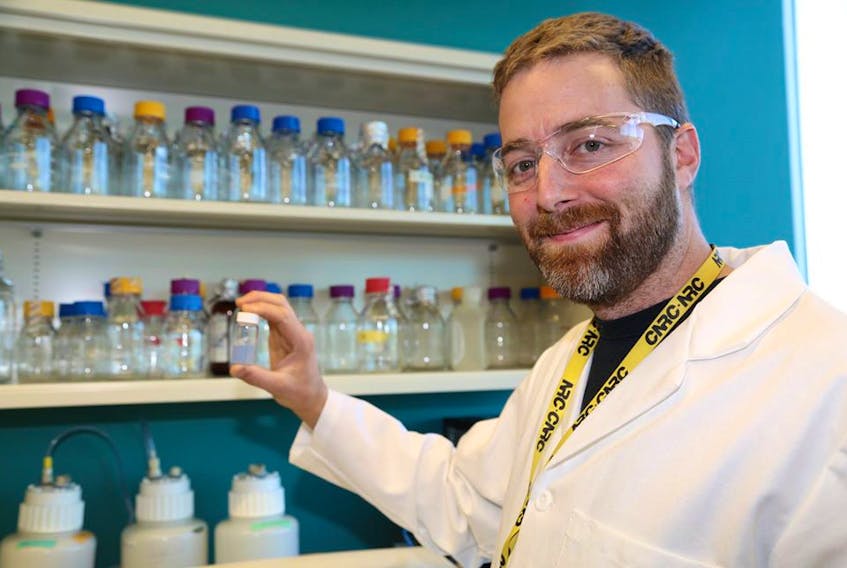P.E.I.’s Chief Public Health Office will soon be checking Islanders to see if they are immune to the coronavirus.
And they could be doing so using a test developed by a Charlottetown company – Affinityimmuno Inc.
Company president Jonathan Zuccolo got curious about the novel coronavirus back in February. He thought it would be an interesting research topic “in the distant future”.
“I didn’t expect it to blow up the way it did,” said Zuccolo.
The company opened its lab on P.E.I. in 2015, with Zuccolo at the helm carrying years of antibody research with him.
The last 10 weeks have been a blur as the pandemic revealed the need for tests like the one Affinityimmuno is developing.
The company is working to scale-up two products: a direct virus test that will find an active infection and a serology test to see whether a person was previously exposed to the virus.
Zuccolo’s serology test is a little different from others currently in use.
“The way I’m designing it is actually to see whether the patient’s serum can inhibit the docking of the virus to the receptor.”
In other words, he’s looking to see if patients can fight off the virus by stopping it from attaching inside of the body.

He hopes this test will be more accurate than the others which seem to give a lot of false negatives or, more seriously, false positives.
“False positives are, in particular, kind of dangerous because what people think is that if you have the antibodies to the virus that somehow means you’re totally safe,” said Zuccolo.
“That's not really true. It’s really just not known.”
That’s why his test will check to see if blood serum has the physical capability of preventing the virus from attaching. Even this won’t say for absolute certain a person is protected from the virus, but it’s a strong possibility, said Zuccolo.
He has several clinicians across the country helping to verify the test.
There are currently two serology tests approved by Health Canada, manufactured by Diasorin Inc. and Abbot. Both look for the IgG antibody which is developed in the late stages of infection and remains for up to months and possibly years after a person has recovered, said Abbot’s product information. Abbott is also developing an IgM test.
Affinityimmuno's test seeks out the IgY antibody or “anti-spike antibody”. Zuccolo hopes, if all goes well, that his test will be approved by Health Canada in the next few months.
Once it’s approved, the Affinityimmuno test should be ready to roll out. Zuccolo said he designed the test to use equipment most medical labs will already have.
The development of this test could be welcome news for some Prince Edward Islanders who are worried they may have been sick with the novel coronavirus (COVID-19 strain) before the first case was officially diagnosed on P.E.I. on March 14.
At a May 20 news briefing, chief public health officer Dr. Heather Morrison said she began monitoring the movements of the virus in the middle of January.
While Morrison didn’t rule out the possibility people may have been exposed to COVID-19, she said it is also possible those who were ill in January and February were sick with a different cold or flu virus.
“Is it possible (people were infected sooner)? I think in the months ahead, as we explore serology testing … we may be able to determine if people have had exposure to the virus.”









